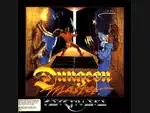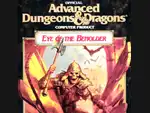
Ultima The Black Gate: A Comprehensive Analysis of Its Impact on RPG History
"Ultima VII: The Black Gate" is a significant title in the world of role-playing games. This game not only revolutionized storytelling and gameplay in the RPG genre but also set a standard that many modern games still aspire to meet.
Players step into the shoes of The Avatar, facing various challenges in the richly crafted world of Britannia, filled with danger and intrigue.
Released in 1992, "The Black Gate" marked a pivotal moment in the "Ultima" series. Its blend of real-time gameplay and immersive narrative showcased a level of depth that was rarely seen at the time.
The game's ability to allow players to interact with the environment and make choices that affect the outcome added to its appeal and cultural impact.
Fans of the series and newcomers alike continue to appreciate its legacy, making "Ultima VII: The Black Gate" a topic of discussion in gaming communities. Its unique story, along with the mechanics that pushed boundaries, keeps players coming back for more.
Key Takeaways
- "Ultima VII: The Black Gate" set a new standard in RPG storytelling and gameplay.
- The game allows for deep interaction and player choice, enhancing immersion.
- Its cultural impact remains significant within the gaming community today.
Development and Release
Ultima VII: The Black Gate emerged from innovative game design and technology. Its development set new standards for role-playing games, and its release marked a significant moment in the gaming industry.
Origins and Game Design
Ultima VII was developed by Origin Systems, led by Richard Garriott. The game aimed to build on its predecessors while introducing more complexity and depth.
The design team focused on creating an immersive world. They incorporated rich storytelling, dynamic characters, and open-world exploration. The Avatar, the main protagonist, returns to tackle complex moral dilemmas.
The game's narrative intertwines with the environment, making players feel their choices matter. Ultima VII was one of the first RPGs to use a real-time engine, allowing continuous gameplay. This broke from the turn-based systems of earlier games, setting a new standard for player engagement.
Technological Innovations
Ultima VII was revolutionary for its time, utilizing the latest technology. The game featured full-screen graphics and a detailed user interface, capitalizing on the capabilities of the 486 processors available in 1992.
It also showcased new animation techniques, contributing to a more visually appealing experience. The game's open-world design allowed players to explore and interact with the environment in ways not seen before. Additionally, innovative event scripting enabled complex interactions within the game.
This level of detail and interactivity created a rich, living world, which was a significant leap forward in game development.
Reception and Legacy
Upon its release in April 1992, Ultima VII received critical acclaim. Players praised its narrative depth, interactive gameplay, and technological advancements. Many viewed it as one of the best games in the series and of its era.
Its success spurred further development in the RPG genre, influencing many games that followed. Fans and critics still recognize Ultima VII for its strong storytelling and immersive worlds. Its legacy continues to impact game design philosophy today, as modern developers look to its innovations as a benchmark for quality in role-playing games.
Gameplay Mechanics
In "Ultima VII: The Black Gate," gameplay mechanics revolve around exploration, combat, and engaging quests. Players interact with a rich world that offers multiple paths and experiences, making every action impactful.
Exploration and Interaction
Exploration is a core element in "The Black Gate." Players navigate an immersive world filled with towns, dungeons, and unique environments. The game uses a point-and-click interface, allowing for fluid movement and interaction.
Important aspects include:
- Environmental Interaction: Characters can examine objects, read books, and engage in conversations.
- Dynamic NPCs: Non-player characters (NPCs) have schedules, making them feel alive. Players can build relationships with them.
- Inventory Management: Players collect items crucial for quests and combat, requiring strategic decisions about what to keep or discard.
This depth in exploration encourages players to fully engage with the game’s world.
Combat System
Combat in "Ultima VII" combines tactical planning with real-time action. Players can choose from a variety of weapons and magic, catering to individual play styles.
Key features include:
- Weapon Variety: Different types of weapons provide distinct benefits, from swords to bows.
- Magic Use: Players can cast spells to heal, attack, or alter the environment. This adds layers to combat strategy.
- Enemy Types: The game offers various enemies, each requiring different tactics for defeat.
Understanding the combat system is essential for surviving the challenges in the game.
Quests and Puzzles
Quests and puzzles form the backbone of the storyline in "The Black Gate." Each quest typically includes a narrative element, driving player engagement.
Essential aspects include:
- Main and Side Quests: The main storyline is complemented by numerous side quests, enriching the player's experience.
- Puzzle Solving: Many quests involve puzzles, often requiring players to gather clues or items.
- Player Choices: Decisions impact the narrative and relationships, creating unique gameplay experiences.
These mechanics ensure players remain invested in their journey through the game.
Narrative and Setting
The narrative of "Ultima VII: The Black Gate" is rich with complex characters and a deep story. Set in the medieval fantasy realm of Britannia, it engages players with its mix of adventure, moral choices, and political intrigue.
Story and Characters
In "Ultima VII: The Black Gate," players assume the role of The Avatar, a hero tasked with uncovering dark plots threatening Britannia. The storyline navigates various themes, including the clash of good versus evil and the importance of moral integrity.
Key characters include Lord British, the ruler of Britannia, and several antagonists who manipulate events from the shadows. The Fellowship, a mysterious organization, plays a crucial role, presenting itself as a force for good while hiding its sinister agenda. Players encounter diverse characters, each contributing unique quests and storylines, enriching the overall narrative experience.
World of Britannia
Britannia is a vibrant and immersive setting that draws players into its captivating world. It features distinct regions like Yew, Britain, and Trinsic. Each area presents unique landscapes, cultures, and challenges.
The game world is filled with interactive elements, including towns, forests, and dungeons. Players can engage with many NPCs, each with its history and quests. The environmental design further enhances gameplay, allowing players to explore and uncover secrets at their own pace.
The combination of a rich narrative and a detailed world makes "Ultima VII: The Black Gate" a memorable experience for fans of role-playing games.
Cultural Impact and Community
The impact of Ultima VII: The Black Gate on gaming culture is significant. Its dedicated fan base and its influence on the RPG genre showcase its lasting legacy.
Fan Base and Modding
Ultima VII: The Black Gate has built a passionate community over the years. Fans continue to celebrate the game through forums and online discussions. Many players appreciate its deep storytelling and intricate world-building.
A thriving modding scene also surrounds the game. Fans create new content, restoring features and enhancing graphics. Some projects aim to update the game for modern platforms, ensuring it remains accessible. This commitment reflects the strong affection for the Ultima franchise.
Influence on RPG Genre
The influence of The Black Gate on the RPG genre cannot be overstated.
Released in 1992, it set new standards for storytelling and interactivity. Players experience a rich narrative while making moral choices that affect gameplay.
Additionally, its open-world design encouraged other games to adopt similar frameworks.
Titles like The Elder Scrolls series cite Ultima VII as an inspiration. The game's detailed environments and character interactions also paved the way for future RPGs, emphasizing immersion and depth.







